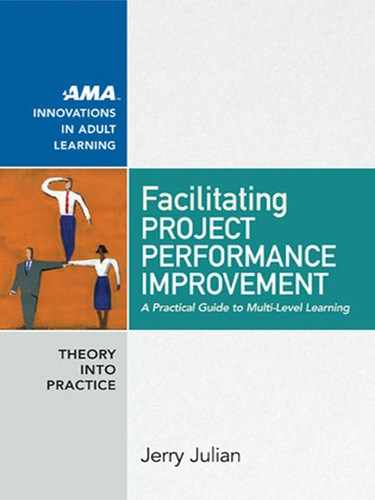The Multi-Level Learning Coach 47
American Management Association
www.amanet.org
liminary data on a team’s progress and results. The facilitator then conducts
the meeting with the project team and subsequently assists in conducting a
management “report- out” to share good practices with other projects and
programs that might bene t from the improvements that result.
Initially, the coach may conduct all of the organization’s retrospectives,
including those at the strategy, process, and project levels. Yet to enable
the organization to expand its multi- level learning capabilities, the coach
works to develop the skills of other high- potential facilitators so that they
can begin conducting these sessions on their own. These trained facili-
tators then move toward becoming coaches themselves, helping others
adopt the skills necessary to help the organization learn, adapt, and con-
tinually innovate from one project to the next. By the end of 2008, Intel
had 65 trained facilitators who were capable of conducting retrospectives
(Lavell & Martinelli, 2008a).
THE IMPORTANCE OF NEUTRALITY AND OBJECTIVITY
It is important that multi- level- learning coaches and facilitators come from
outside a given team’s immediate organizational reporting structure and
that they do not have an investment in any agenda other than facilitat-
ing learning and continuous improvement. This means, for example, that
the facilitator for strategic retrospectives should not report to the senior
management team. Likewise, it also means that the facilitator or coach
should not be responsible for managing the individual performance of
project team members, nor should he use information obtained as part
of his work to in uence individual performance reviews or personnel de-
cisions. Although this may raise the eyebrows of managers at rst, it is
an important principle of multi- level learning. As discussed earlier in this
chapter, learning is enhanced by objective, skilled facilitation that helps
teams overcome communication barriers and defensive routines, both of
which can be exacerbated if the discussion leader is perceived as favoring
certain people, viewpoints, strategies, or approaches over others. Facilita-
tion by someone other than an objective, unbiased third party can keep
important issues buried, leading to continued frustration, avoidance pat-
terns, and less than optimal performance.
..................Content has been hidden....................
You can't read the all page of ebook, please click here login for view all page.
